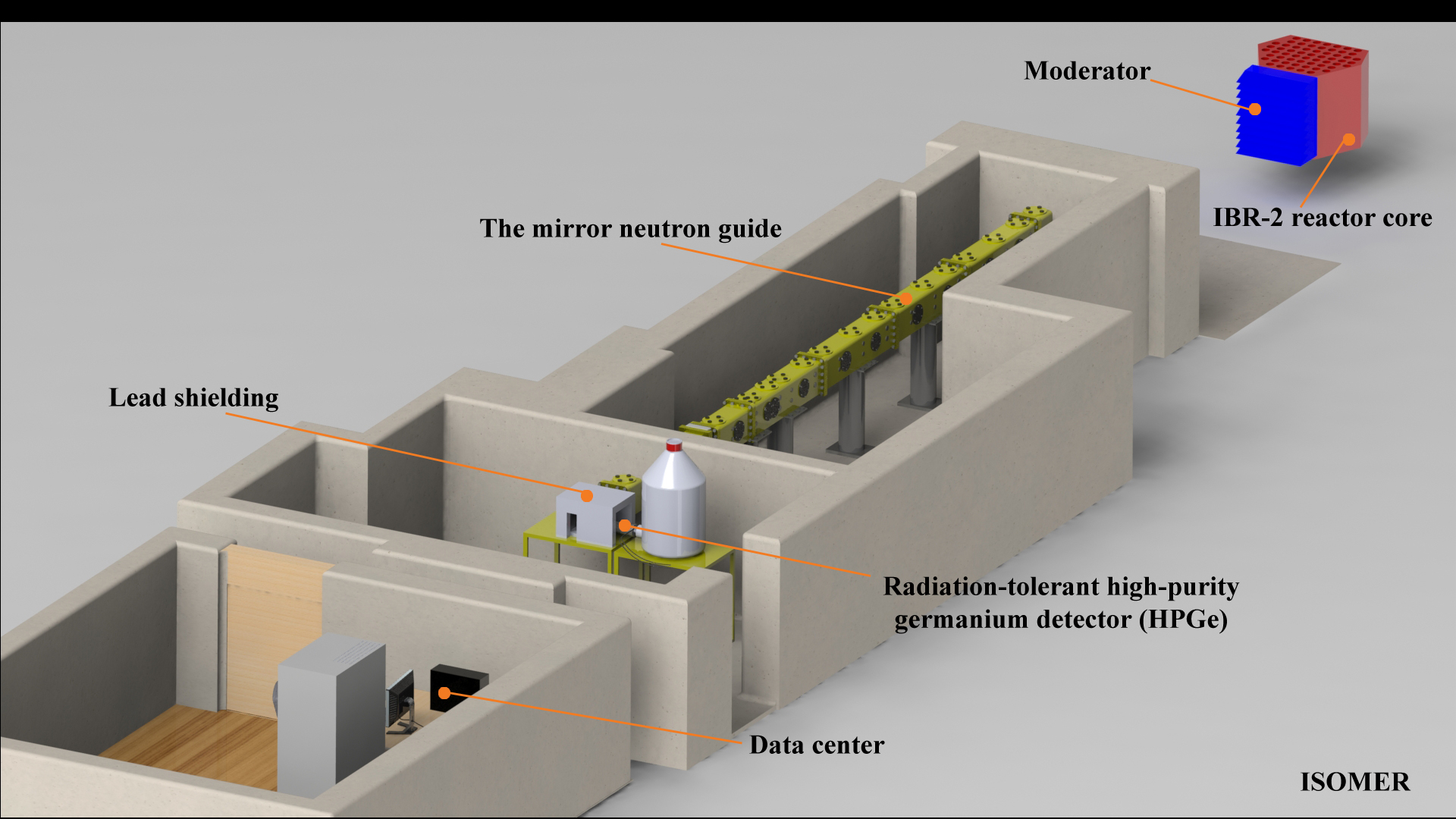Responsible for the facility
Hramco Constantin
tel. +7 (49621) 6-30-69
e-mail: This email address is being protected from spambots. You need JavaScript enabled to view it.
Main research areas
1. Elemental analysis using prompt gamma rays.
Main view of facility
Description of ISOMER
ISOMER is an experimental facility for elemental analysis based on prompt gamma rays at the IBR-2 research reactor. The facility consists of a curved mirror neutron guide and a radiation-resistant detector of high-purity germanium HPGe, enclosed with lead shielding against background gamma rays. The mirror neutron guide of beamline 11b starts 3,5 meters from the surface of the reactor moderator. It consists of plane-parallel mirror sections, has a total length of 15 meters and a cross section of 2x10 cm2. The curved shape of the neutron guide with a curvature radius of ~2000 m allows to separate thermal and fast neutron beams in space and produce a relatively pure thermal neutron beam in the beam extraction area. The facility consists of HPGe detector with a resolution of 2.3 keV for the 60Co gamma line with an energy of 1332,5 keV and a relative efficiency of 80%.
Basic parameters Neutron energy 0,025 eV Neutron flux up to 106 n/cm2 s Currently, the work is underway to improve the sensitivity of the facility and to expand the range of spectra that can be analyzed.
Sample environment
The sample is packed, if necessary, in a Teflon bag with a wall thickness of 20 µm, positioned in an evacuated beamline, enclosed with 6LiF plates.
Publications
- C. Hramco, K. Turlybekuly, S.B. Borzakov, N.A. Gundorin, E.V. Lychagin, G.V. Nehaev, A. Yu Muzychka, A.V. Strelkov, E. Teymurov, Experimental setup for elemental analysis using prompt gamma rays at research reactor IBR-2; Nuclear Engineering and Technology, 54 (2022), 2999-3005. https://doi.org/10.1016/j.net.2022.02.022
- S.B. Borzakov, A. Zh Zhomartova, A.Yu. Dmitriev, V.Yu. Koval, C. Hramco, Wael M. Badawy Prompt gamma activation analysis for determining the elemental composition of archaeological ceramics; Applied Radiation and Isotopes, 183, 110152 (2022). https://doi.org/10.1016/j.apradiso.2022.110152
